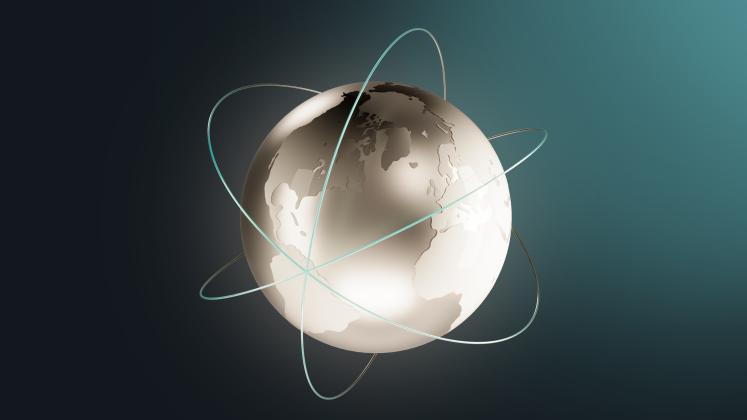In today’s heavily interconnected global ecosystem, what happens in one part of the world can quickly embroil other parts. Nothing better reflects how our crises are now shared globally than the current COVID-19 pandemic. But this is not the only global issue we face, though the pandemic may well exacerbate those challenges. Water scarcity, rising energy demand and food insecurity are just a few of the other issues that require international cooperation, accountability and governance, especially now at a time that the pandemic might drive rising global inequality and intensify each one of those challenges.
Water, energy and food are inherently interdependent, so should be viewed holistically through a Nexus lens. By leveraging the power of AI, the Water-Energy-Food Nexus could be the ripe first-step in creating cooperative AI-supported governance. With AI, the Nexus approach may create more resource efficiency, better international administration and cooperation, and may even help us to achieve several of the Sustainable Development Goals (SDGs) by 2030.
The “Nexus approach” highlights action along three dimensions: the economic (increasing resource efficiency), the social (in creating equitable access), and the environmental (instituting policies that address environmental impact). It especially emphasizes the intra-dependent relationship between stakeholders along these dimensions. Many of these issues we are seeing in the Water-Energy-Food Nexus stem from the suboptimal flows and dependencies of resources, technology and policy application.
AI could support the Nexus approach by optimizing the management of the interests, synergies and interdependencies between these three different sectors. It could define cases of “success" or “failure” by analyzing the general principles and conditions that made an approach to optimize water, energy and food work or fail. The implementation of the Nexus approach relies on multiple nodes, including material fluxes, public participation and a standardized approach to biophysical and institutional systems. Monitoring inputs and the impact they have has been a challenge for regulators. AI could assist by identifying which Nexus nodes might be changed, optimized or redefined to change outcomes.
AI could also implement the much-needed harmonization of scales of measurement. Water, energy and food have their own specific measurement, spatial, and temporal scales. These scales influence each other, though information-sharing is often not aligned. Jurisdictional and/or departmental overlap leads to fragmented decision-making even within a single jurisdiction, let along across a regional sphere. AI could provide a central system of standardization and analysis, even with the input of multiple variables. With standardization across sectors, outcomes would become more transparent and aligned.
Because of the multi-faceted relationships between various stakeholders, distinct tradeoffs are often found within the Nexus, often as the result of political interests. Historically, governments have been known to prioritize investments in communities and infrastructure that possess more material resources. Take the issue of virtual water for example. The water within food and other goods is closely tied with large-scale land acquisitions (LSLAs). In the past, developed nations have purchased large swaths of land in predominantly developing countries where the cost of resourced land is less expensive. These developed countries then have access to land and, thus, food production, water and energy, that once belonged to the developing country. AI could assist in identifying specific nodes: such as measuring the precipitation amount within the lands, how community income could increase or decrease from the sale of the land, or how a specific demographic within the country could be impacted by the sale.
AI’s key contributions to Nexus management lie in three core areas: examining the linkages between resources, analyzing impacts on the water, energy and food sectors from micro- and macro-events (like urban planning or climate change), and estimating the possible policy consequences of any policy changes that are made to one or more of those sectors. However, even with its promise of optimization to the Nexus approach, AI comes with a few considerations:
-
Unaligned data practices - The scientific challenge associated with Nexus governance relates primarily to the myriad of data required to undertake the necessary analyses. Data is at the heart of international cooperation, and AI-based decision support mechanisms must rely on accurate and available data reservoirs. Significant effort must be spent on monitoring and refining these data reservoirs otherwise “data poisoning” could result in sub-optimizing or delegitimizing these systems.
-
Lack of global regulation - Some measure of ethical guidelines currently exist, but there is no clear legal framework when it comes to the use of AI on this issue. Without international standards, nations gain more time to rapidly develop their own AI agenda without the onus of outside interference.
-
Power play escalation - Though technology could create greater balance between countries, a lack of AI regulation and cooperation may result in power amplification for those nations that currently have access to the large datasets needed for AI systems and models to work effectively.
-
Disjointed multilateral diplomacy - Diplomacy is the opening mechanism in applying AI to the Nexus approach. Jovan Kurbalija, Executive Director and Co-Lead of United Nations Secretary-General’s High-Level Panel on Digital Cooperation has suggested that creating “a multilateral platform where candidatures are listed along with their institutions”. Given the volume of diversity within UN institutions and agencies alone, this could be the first cornerstone in organizing regional stakeholders within the Nexus approach.
COVID-19 is already beginning to impact food, water and energy resources. It is now more important than ever that all three are viewed through a Nexus lens, or else fragmented policies towards one could see negative ricochets in the others. AI can play an important governance role in ensuring that policies, management and resource allocation lead to sustainable solutions, particularly in areas of the world that are likely to be most negatively impacted by the COVID-19 pandemic and economic contraction to follow.
This article was written by Elizabeth J. Taylor as a contributor to AI & Global Governance. The opinions expressed in this article are those of the author and do not necessarily reflect those of the Centre for Policy Research, United Nations University, or its partners.
Elizabeth J. Taylor is the founder and CEO of WaterLoom, a data analytics and water resilience advisory. Previously she founded a boutique strategy firm based in Munich and London. Dr David Alkaher is a CTO and a recognized innovation leader in the Israeli tech ecosystem. He advises public institutions, private companies, and innovation hubs on entrepreneurship and “deep tech”.
Suggested citation: Elizabeth J. Taylor, Dr David Alkaher., "AI & Global Governance: COVID-19 Underlines the Need for AI-Support Governance of Water-Energy-Food Nexus," UNU-CPR (blog), 2020-08-01, https://unu.edu/cpr/blog-post/ai-global-governance-covid-19-underlines-need-ai-support-governance-water-energy-food.


